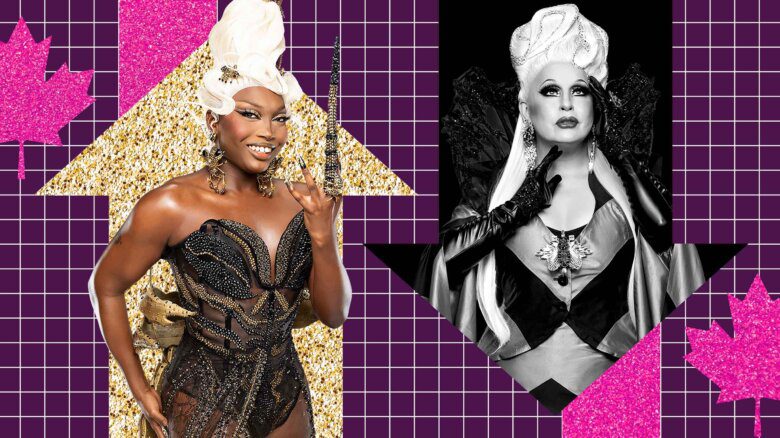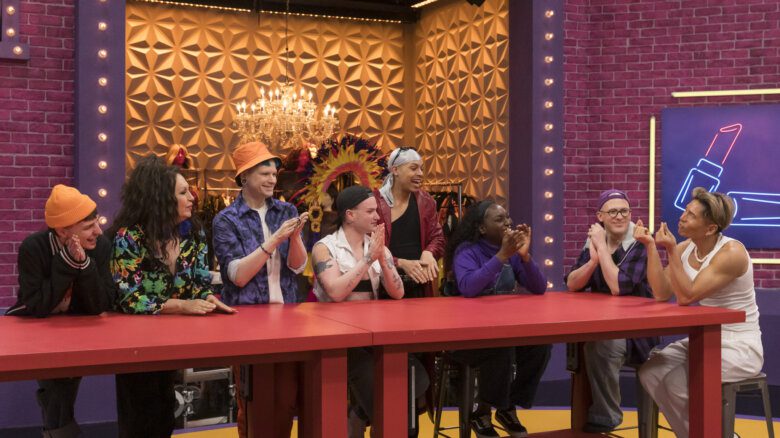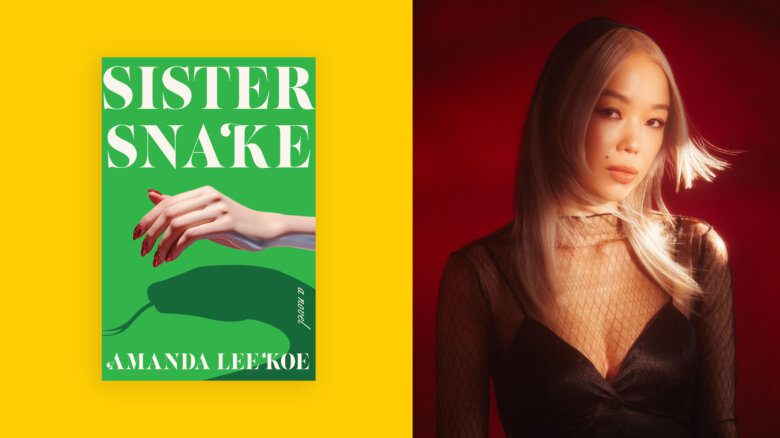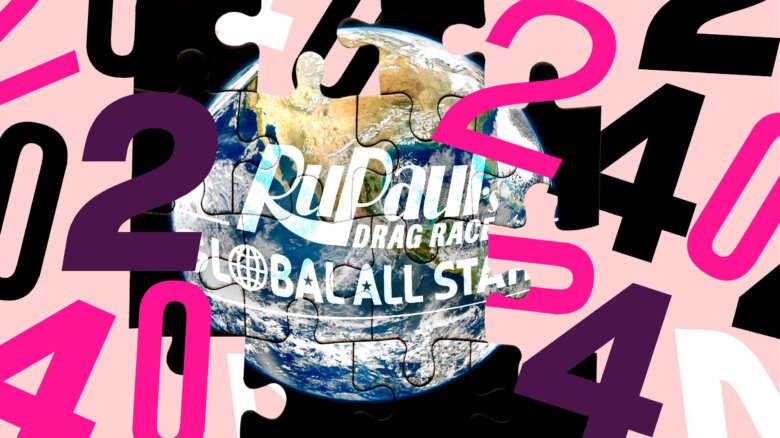In March, Texan drag queen Brigitte Bandit delivered an impassioned testimony to state legislators, urging them to vote against proposed anti-drag bills. In true Legally Blonde style, she stepped into the chamber dressed in a floor-length, hot-pink gown, flawless makeup and a candy-floss pink wig, teased into a halo of curls. It was the perfect combination of attention-grabbing camp and human-centered politics, but legislators themselves refused to hear Bandit out. “After they heard the speeches in favour of the anti-drag bills—and there weren’t many—they all got up and left,” Bandit says. “These people aren’t listening to us.”
Bandit returned to the Texas State Capitol on May 11 with a new attitude and a new game-plan. “Fuck it,” she laughs. “If they won’t listen to me anyway, I’m going to do whatever I want.”
This time, she wore a strapless, white gown emblazoned with the names of every child shot dead in the May 2022 massacre at Robb Elementary School in Uvalde, Texas, as well as a Texan flag and the names of various anti-drag groups. These right-wing crusaders choose names like PROTECT TEXAS KIDS, yet they focus solely on barring drag and trans rights whilst turning their backs on countless school shootings, Bandit explains. “I knew far-right groups would be at the Capitol to sneak photos of my testimony, so I covered myself in the issue that they ignore.” After waiting 13 hours to testify, Bandit was swiftly dragged out of the chamber shortly after she entered, when security clocked the names on her dress.
Across the U.S., drag shows—particularly Drag Story Hour events and all-ages drag shows—have been targeted by far-right protests and white nationalists with alarming regularity. According to GLAAD, there have been “more than 160 protests and significant threats made against drag events since early 2022,” with drag artists of all descriptions being caught in the crossfire. Legislators in Texas, Arizona, Kentucky, Oklahoma and other states have proposed anti-drag bills, which classify drag as “adult cabaret entertainment.” Texas Bill SB-12, for example, would “restrict sexually explicit performances on the premises of a commercial enterprise, on public property, or in the presence of an individual younger than 18 years of age” (due to bigotry, this would include drag).
In March, Tennessee became the first state to officially pass an anti-drag bill. Its implementation was initially delayed by two months; then, in June 2023, the bill was struck down by a federal judge, whose 70-page ruling described the law as “unconstitutionally vague and substantially overbroad,” arguing that it would encourage “discriminatory enforcement.”
As a Black drag queen living and working in Nashville, Tennessee, Vivica Steele has found the last few months “overwhelming, to say the least.” Although the state’s bill ultimately failed, Steele urges a focus on “the bigger picture, because this happened so fast.”
“What we don’t want is for them to get the power to change our constitution,” Steele says. “Then they’ll have complete control, and we’ll never get it back.” She highlights that Tennessee already has a history of criminalizing marginalized groups, and stripping them of their voting rights. These bills, she points out, are part of a wider mission to empower police, and further disenfranchise those already facing systemic oppression.
On a day-to-day level, the onslaught of anti-drag propaganda has made the last few years even tougher for performers. It’s already an expensive job with few workers’ protections, but the material struggles of drag artists are drowned out by this noise. “I know some queens that will buy gas to get to a show before they pay a bill,” says Steele. “You’re constantly spending money on your art: even my earrings and ring sets are around $85, and shoes can go anywhere from $100 upwards, depending on the size of your feet. I’m a size 10, so I’m lucky! Then there’s the $500 for a custom gown and wig, the make-up palettes, lipstick, nails—you name it. You’re constantly spending money on your art.”
Then, there are the show cancellations. In the last year alone, shows in Australia, Canada, the U.S., the U.K., Finland and beyond have been cancelled due to fear of backlash. These cancellations can be devastating for performers. Bandit had a show in San Antonio canceled earlier this year, due to a media storm created by right-wing journalist Tayler Hansen, who caused a media storm by sharing a video of an unaccompanied child at an all-ages drag show. Bandit explains: “It’s the kid of one of the vendors. The kid is always there, they know the queens and everyone that works in the bar!” The kid was just “hanging out” as always, but this context was obscured by fear-mongering, and the show was axed. “I’m actually thinking of creating a fund, a kind of right-wing conspiracy theorist insurance policy,” Bandit says. “That fund could be useful. It would help to alleviate the financial stress of having a show cancelled, but there are mental health repercussions of this misinformation, too.”
One performer who knows what it’s like to be in the eye of these storms is London-based That Girl, the drag pseudonym of author George Lester, whose YA book Boy Queen tells the story of a young boy falling in love with drag. In August 2022, she heard rumours that her first drag story hour event was due to be targeted, so the venue hired a security guard, but no protesters came. “I thought it had just gone away,” she says.
Sadly, this wasn’t the case. In February this year, That Girl caught the attention of Turning Point UK, a right-wing student group known for its Islamophobic and queerphobic views. Anti-drag propaganda videos started popping up on Turning Point’s socials, one of which That Girl says contains “so much information that it’s hard to unpick.” The organization took a video of drag artist Copper Topp, That Girl’s drag sister, doing the splits in a skirt and a leotard, with a little girl in the background ––a detail which sparked backlash. “The information they put out is that we’re doing this at drag story time,” she explains, “which couldn’t be further from the truth.”
Now, That Girl frequently has photos of her 18+ gigs reposted by Turning Point without context, to insinuate that she’s performing sexually explicit material for kids. “Their claim is that because my social media isn’t child-friendly or age-restricted, I shouldn’t be allowed in front of children. The argument falls down quickly when you put in a little thought. They’re just using ‘think of the children’ rhetoric to get people riled up, and to some degree, it has worked.”
Right-wing protestors and evangelicals have been invoking this rhetoric for decades: from Anita Bryant’s homophobic “Save Our Children” campaign in the 1970s to Margaret Thatcher’s 1988 legislation Section 28, which barred any mention of homosexuality in U.K. schools for more than a decade, these arguments aren’t new. “It’s not the government’s business to judge what is family-friendly,” says Steele. “Parents have the right to decide what their kids should and should not be exposed to, and we shouldn’t be criminalizing people under the guise of protecting children.”
As these wars rumble on, support has come from unexpected corners. Steele was on stage with Lizzo in Tennessee in Apri; Bandit’s socials have been flooded with messages of strength and affirmation, as well as offers “from groups here in Texas who are willing to come out to drag shows and defend us”; That Girl’s Drag Story Telling shows are still being protested. But conservatives are still overwhelmingly drowned out by hundreds of supporters, who hold “joyous street parties” as a form of counter-protest.
Within drag, artists have long banded together and shown solidarity by booking each other, sharing tips, gigs and resources, and giving each other behind-the-scenes advice on pay. “Because we’re freelance and we’re drag and we’re queer, I feel like people try to take advantage of us financially,” says Bandit, recalling her earliest gigs at USD $50 a show. Now, as a producer and full-time drag queen, “I advocate for higher pay not just for myself, but for the entire community. No more $50 gigs! It’s a minimum of $100, but I always try to get people paid more if I can.”
Steele has similarly worked her way up the industry ladder, becoming the first drag queen to hold two residencies on Nashville’s Broadway. “We’re artists,” she says. “We should be getting riders and dressing rooms. We should be setting those standards. I’m not saying I’m not grateful, but we have to start looking at drag differently and rewarding individuals, because drag is expensive. Like, I appreciate that $30 booking fee, but I just spent $300 coming here and looking good!”
Advancing these conversations—which are fundamentally workers’ rights issues—is difficult in today’s increasingly hostile climate. Drag artists are too busy fighting these bills to preserve their livelihoods, and navigating the very real risk of violence. “In the run up to the first protest, I was terrified,” recalls That Girl. “I had no idea what was going to happen. I wanted to just run, and leave the event in the dust.” The LGBTQ+ community and their allies keep showing up for That Girl, but the fears have been planted. “I used to take public transport in drag all the time, but since these protests I’ve done that maybe four times in total,” she says. “It’s always been a risk and I’ve had slurs thrown at me on numerous occasions, but now I don’t feel safe in this current climate.”
Steele hires her own private driver to take her to and from drag events. “Yeah, I do,” she sighs. “We have security guards meet us at our door, and they walk us to our locations. Establishments have to take extra precautions to ensure security [is] outside when we get there.” The support still outshines the hate—“I think a lot of idiots just have loud voices,” Steele says—but there’s still trepidation when it comes to safety, and she underlines that she still sometimes has to deal with racism from within the LGBTQ2S+ community when she steps inside. As Vivica, she’s quick to shut down racists. “Being a drag queen is a powerful thing,” she laughs. “Vivica has permission to check someone if they’re out of line! But out of drag, do I really want to walk around correcting every racist? I’d have no free time, especially living in Tennessee!”
These attacks aren’t going anywhere soon, but everyone I speak to for this story loves drag enough to keep fighting for its preservation. “I come from a line of ministers and reverends,” says Steele, “and I believe that my drag is truly one of my greatest ministries.” Since her career began more than a decade ago, she’s used drag as a medium to fundraise for homeless LGBTQ+ youth, support charitable causes and spread messages of joy. “I’m like the Michelle Obama of drag,” she laughs, explaining that her drag and her faith are inextricably linked. Across the pond, That Girl has spent four years honing her craft, speaking to audiences of all ages about the power of drag. “In the U.K., we’re in a cost of living crisis,” she explains. “People can’t afford to pay their bills, turn their heating on, or feed their children. Me reading stories to children about kindness, empathy and inclusion is not going to cause the end of civilization, but this government might.”
As for Bandit, she remains on the frontlines of these battles alongside other Texan drag artists. “Whenever I think about my job, I think it’s my role to spread joy,” she says. “I see the joy that drag brings to other people, and that’s why these people are so scared of drag shows, right?”
“Drag is something I do for me, but it’s also about sharing my joy with the rest of the world,” she adds. “Every single weekend, I have so much fun when I’m working, and so does everybody else. So, that’s why I’m going to keep on doing it.”
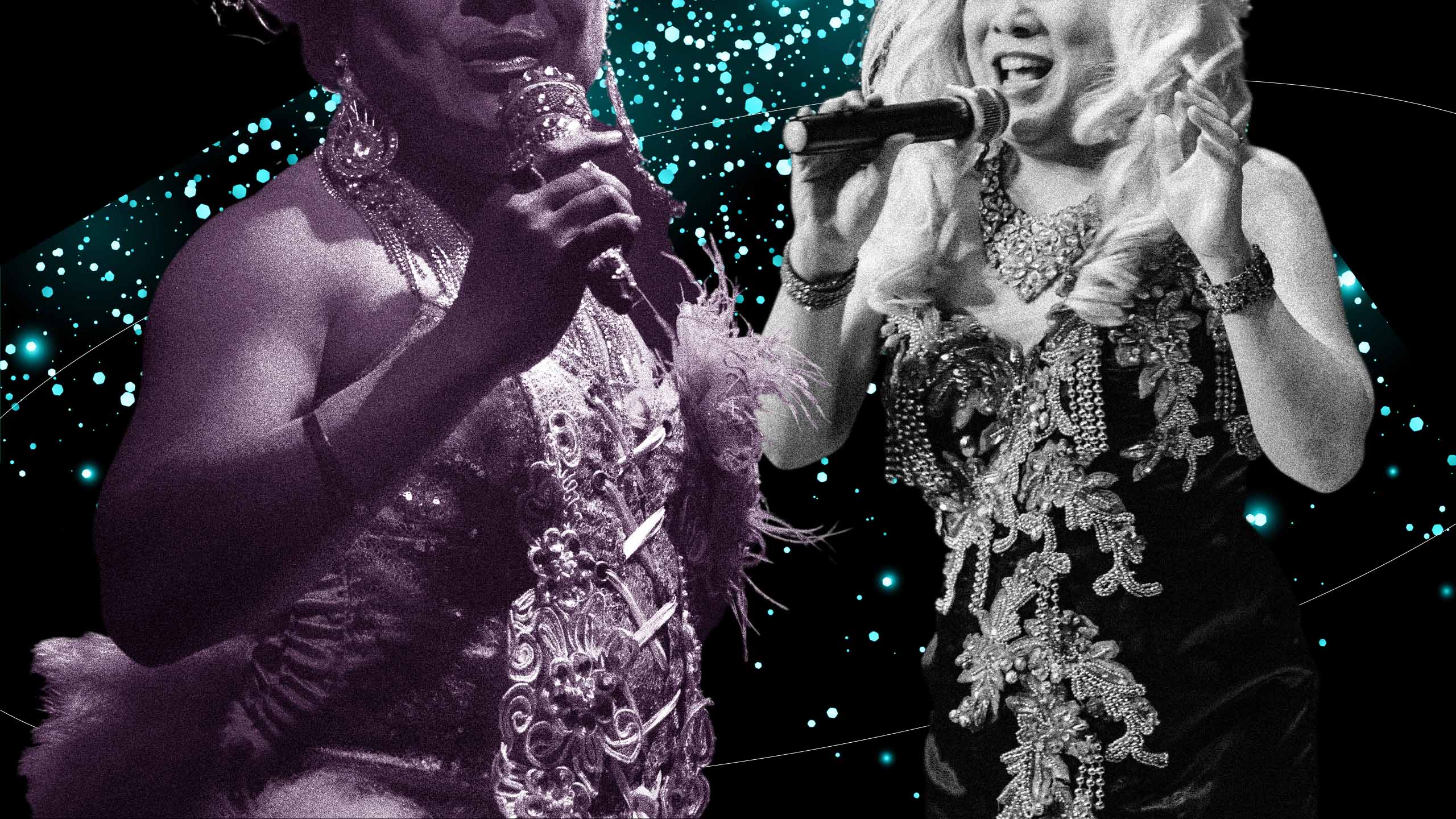

 Why you can trust Xtra
Why you can trust Xtra